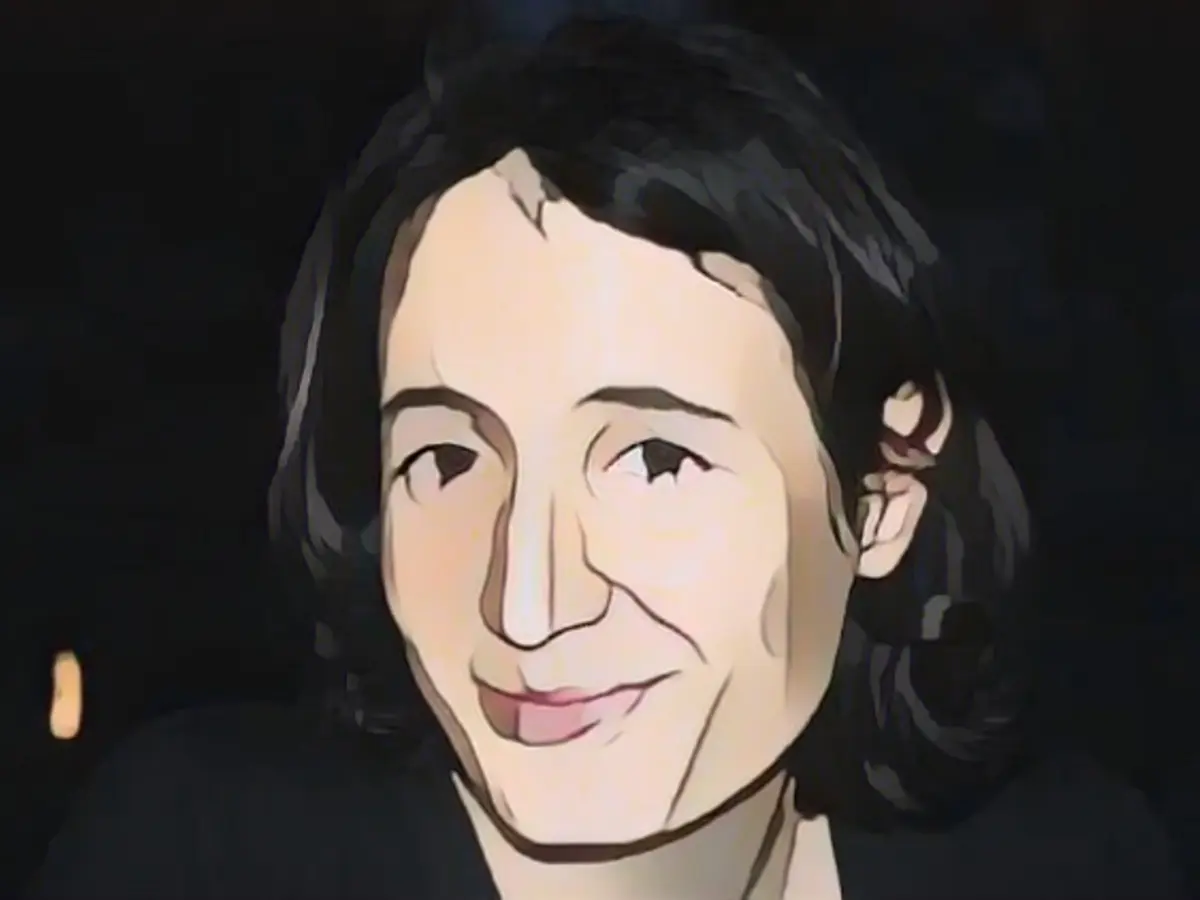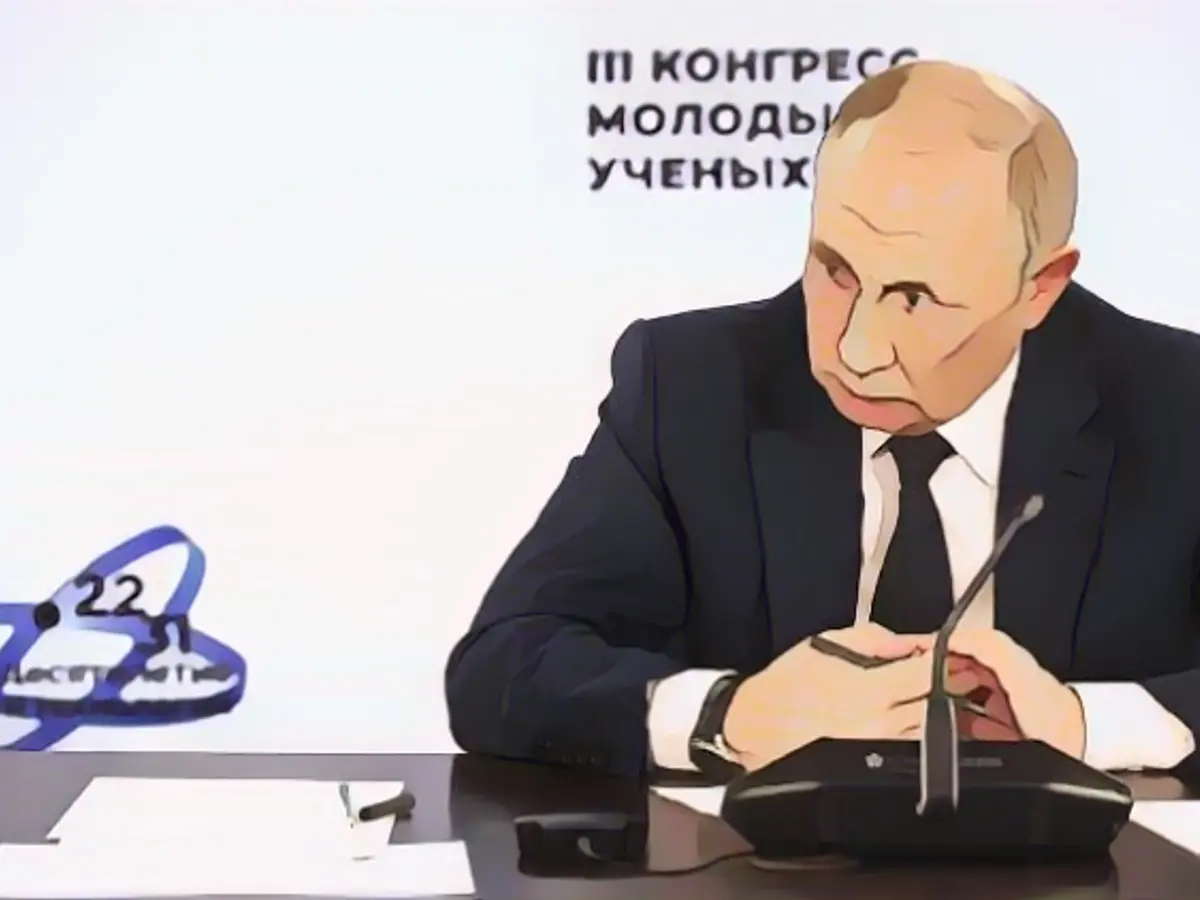"Putin thinks it will never happen"
The decision on whether the EU should start accession negotiations with Ukraine's Kiev is approaching. Marie Dumoulin is Director of the Wider Europe Program at the European Council on Foreign Relations (ECFR) think tank. She explains why not only the EU but also Ukraine could face problems if it joins too quickly. And why Russia's President Putin is not even thinking about Ukraine becoming a member of Kiev.
ntv.de: At their summit meeting on December 14 and 15, the heads of state and government of the European Union will vote on whether the EU should start accession negotiations with Ukraine. What is Putin particularly afraid of if Ukraine joins the EU?
Marie Dumoulin: I don't remember Putin saying anything about Ukraine joining the EU and the possible consequences for Russia. That may be because he thinks it will never happen because he sees Ukraine as a failed state. But that does not mean that he is not worried about the impact that EU accession will have on Russia's influence on Ukraine, on the definition of Russian identity and on the kind of political model that Russia is trying to establish. Ukraine's accession to the EU would destroy Putin's idea of a large Slavic nation made up of Russians, Belarusians and Ukrainians. Ukraine would then be even more clearly recognizable as a democracy that is part of the Western system of values and norms. This is not compatible with Putin's political project. Joining the EU would completely remove Ukraine from Russia's sphere of influence. It is already no longer subject to Russia's influence. However, Putin can hope to restore this influence over time if Ukraine loses the war.

Although the EU is already voting on opening accession negotiations, does Putin still believe that Ukraine will become part of his empire?
He believes that he will win the war. If Russia wins the war, Ukraine, or what is left of Ukraine, will be a failed state. The chances of this failed state ever joining the EU will be slim. That is Putin's logic.
Can Ukraine join the EU if the fighting with the Russian invader continues?
I don't think that question is on the table now. Because the start of accession talks is the beginning of a process that can be very lengthy. We see this with the countries of the Western Balkans. The Ukrainians hope that the process will be shorter. However, most EU member states are aware that it will take time to fulfill the accession criteria necessary for the country to move closer to the rest of the European Union. When Ukraine is ready to join, many hope that the war will be over.
There are reportedly political forces, not only in the US but also in other Western countries, insisting that Ukraine should negotiate peace with Russia. Could the prospect of joining the EU persuade Kiev to give up territory in possible peace negotiations with Russia?
I don't think so. Most people in Ukraine think that a ceasefire or a peace agreement with Russia would just be a pause that Russia would use to restore its fighting power and start another war in a few years. The second point is that the Russians have committed war crimes and crimes against humanity in the occupied territories, which have been liberated since February 2022. Most Ukrainians think: if we leave the territories under Russian occupation, the people there will not survive, so we have to save our people from Russian occupation. That makes territorial concessions unlikely. Moreover, I am not sure that the international community has an interest in accepting the idea that the use of force can lead to a reward in the form of territory.
Some critics see the EU Commission's recommendation to start accession negotiations as a purely geopolitically motivated decision. Is there any truth in this?
Both previous EU enlargements and the EU as such are geopolitical projects. The fact that enlargement and the start of accession talks with Ukraine have a geopolitical dimension is not a special case. It is true that it is a special context because Ukraine is at war and the war has thus returned to the European continent. But there was also war in Europe in the 1990s, in the countries of the Western Balkans. The prospect of these countries joining the EU also has a geopolitical dimension, as it is intended to be a stabilizing factor. In the case of Ukraine, the sense of urgency and solidarity is greater because of the tragedy it is going through. Nevertheless, I do not believe that anyone is prepared to relax the conditions for Ukraine's accession. Also because it would be destructive for Ukraine itself to join the EU before it is ready.
What disadvantages does Ukraine face if it joins too early?
The question arises as to whether the Ukrainian economy would be able to compete on the European market. Enlargement can bring investment into the country, provided there is security. On the other hand, Ukrainian companies need to catch up in order to remain competitive on the European market. There is also the question of whether people would stay in Ukraine if, as EU citizens, they had the opportunity to move to other EU member states. Some countries have experienced a huge wave of emigration after joining the EU - just think of Bulgaria, which was affected by such a wave.
Ukraine still has to carry out many reforms before it can become a member of the EU. Where do you see the most urgent need for action?
There were seven recommendations from the EU Commission, according to which Ukraine is called upon to fight corruption and oligarchization, reform the judiciary and the constitutional court and strengthen media and minority rights, among other things. These are the priority areas that the EU will be looking at very closely. Ukraine has taken some good steps. But there is still a lot to do. When accession negotiations start, Ukraine will have a huge amount of work to do, including adapting Ukrainian legislation to EU standards.
The EU will also have to change before Ukraine's accession. It will have to reorient itself in terms of budgetary policy, for example in the allocation of agricultural subsidies. This is demonstrated by the repeated protests by Polish farmers on the border with Ukraine, who fear competition from the neighboring country due to the fall in grain prices. What solutions are there for this?
Enlargement will have a financial dimension. Money will be needed to implement EU policy in the future new member states. The EU member states should start this discussion now. Ukraine will need money for its reconstruction. At the moment, it needs money to continue to exist as a state. In some specific policy areas, the current member states may want to protect their economic interests. In the previous waves of EU enlargement, there were safeguard clauses that allowed time for the transition. Ukraine's accession to the EU would be nothing special, apart from the size of the country and its needs.
What political problems could Ukraine face if it joins the EU?
It's hard to say, because we don't know when and how the war will end. We also don't know how it will influence the political thinking of Ukrainians. At the moment, Ukrainians are fighting for the sovereignty of their country. If their country joins the EU, this means that they will have to give up their sovereignty in some areas. So that could lead to a contradiction. I don't know how they will deal with this contradiction, because I don't know how they will see the world and themselves when the war is over.
So far, the Ukrainians seem to be desperate to become part of the EU. Back in 2014, they protested on the Maidan because Prime Minister Viktor Yanukovych, who was supported by Putin at the time, withdrew his signature from the association agreement with the European Union. Could they lose this enthusiasm for the EU?
I don't think there are any doubts about joining the EU at the moment. Ukrainians have an almost romantic longing to join the EU. The EU has supported Ukraine since the beginning of the Russian invasion. But it took a lot of time and effort for the Ukrainian government to receive this support. The longer the war goes on, the more some people in Ukraine might feel that they are not getting enough support. And this romantic relationship could gradually turn into a much more cynical relationship. It's not that far yet. Ukrainians are very grateful for all the help they receive. But there is a growing sense of frustration about the energy and effort it takes to get the support.
Lea Verstl spoke to Marie Dumoulin
Read also:
- Year of climate records: extreme is the new normal
- Precautionary arrests show Islamist terror threat
- SPD rules out budget resolution before the end of the year
- Numerous oil, gas and coal lobbyists at climate conference
- At the upcoming EU summit on December 14 and 15, leaders will vote on whether to commence accession negotiations with Ukraine, a decision that could pose challenges for both the EU and Ukraine themselves.
- Marie Dumoulin, Director of the Wider Europe Program at the European Council on Foreign Relations (ECFR), notes that Russia's President Putin does not consider Ukraine's EU membership an option, despite the impending EU vote.
- Should Ukraine join the EU in the midst of the ongoing conflict with Russia, it would challenge Putin's ambition of a large Slavic nation, which includes Russians, Belarusians, and Ukrainians, and further solidify Ukraine as a democratic entity within the Western value system.
- In addition, the EU budget may need to be reallocated to accommodate the financial demands of Ukrainian accession, particularly when it comes to agricultural subsidies, causing potential concerns among EU member states.
- As the war continues, the prospect of Ukraine joining the EU is not relevant, as the accession process is lengthy and depends on the country meeting various EU criteria before moving closer to the rest of the Union.
Source: www.ntv.de








